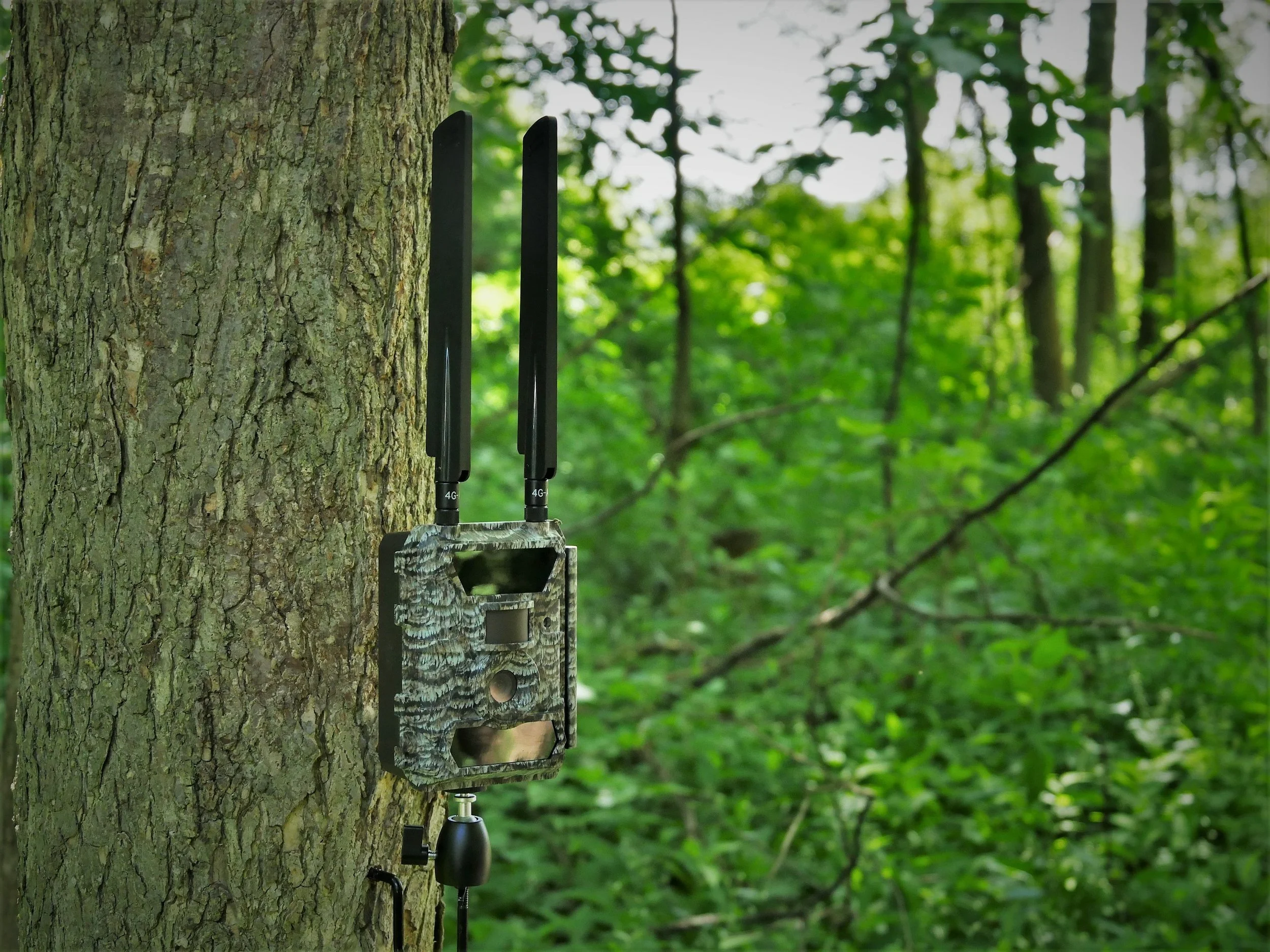By: Anna Brown
Citizens Count
From spotting prize bucks to capturing porch pirates, cameras have become an increasingly popular tool for hunters and everyday homeowners. However, some wildlife protectors argue live cameras are unethical, while privacy advocates are leery of hunters surveilling private property. Earlier this year the New Hampshire House of Representatives passed a bill to add regulations on how hunters can use game cameras. The next step is a public hearing before the Senate Energy and Natural Resources committee.
Current game camera rules in NH
As of March 2022 New Hampshire law does not address game cameras. However, the Fish and Game Department has a rule about “live-action game cameras” (http://gencourt.state.nh.us/rules/state_agencies/fis300.html). If a camera can transmit photos or videos remotely to a cell phone or other device, a hunter cannot use the camera to locate an animal on the same calendar day he or she is hunting. In other words, it is against the rules to go out and shoot a deer as soon as you see it pop up in your camera feed.
This rule against same-day hunting is supposed to preserve “fair chase” hunting. “Fair chase” describes an approach to hunting in which wild animals roam freely and hunters don’t get an extremely unnatural advantage. Of course, “fair chase” is subjective.
Fish and Game rules do not address whether a hunter needs permission from a property owner before placing a game camera. Generally speaking, a hunter can place tools like blinds and game cameras wherever hunting is allowed, so long as they do not damage property or trees. (New Hampshire generally allows hunting on private property unless an owner posts a sign that hunting is prohibited.)
Other privacy laws also don’t apply, unless game cameras are pointed at a private place (such as a home’s windows) or are able to record private conversations. Simply put, Bambi doesn’t have privacy rights.
A new law on game cameras?
HB 490, originally introduced last year in the New Hampshire House, would add a new section to state law addressing both “fair chase” and privacy concerns with game cameras.
First, HB 490 forbids a hunter from taking an animal within ten hours of spotting the animal on a game camera. This is a change from the current Fish and Game rule, which forbids hunting on the same calendar day.
Second, HB 490 requires written permission from the property owner before placing a game camera on private property.
Third, HB 490 requires hunters to label game cameras with their name and contact information.
A property owner could contact law enforcement to remove a game camera that violates any part of the law.
Breaking the law would be a violation, similar to a speeding ticket, but the fine would be hefty: up to $1,000 per offense. If a hunter breaks the law more than once, he or she would have to forfeit the game camera.
Arguments for, against game camera law
Supporters of HB 490 argue that as technology advances and game cameras become more common, a law is necessary to handle conflict between hunters and property owners.
At the first public hearing for HB 490, representatives of the NH Timberland Owners Association argued that the existing Fish and Game rules do not do enough to protect property owners who may not want cameras on their property, even if they welcome hunters. A person may be comfortable with a hunter on their property now and then, but a camera capturing movement at all hours – including human movement – may be unsettling.
The hefty fine and potential loss of a camera will motivate hunters to abide by the law.
Some opponents of HB 490 are concerned the bill does not do enough to protect “fair chase” hunting. With enough cameras, a hunter could have an idea of the location of all the large animals in an area.
Parts of the law – particularly the ten-hour time frame – would also be difficult to enforce. Officers would need a tip or have to search footage to determine if a hunter was violating the ten-hour time frame.
States including Utah and Nevada have completely banned the use of game cameras for hunting. These bans are partly intended to protect “fair chase.” The bans are also intended to prevent conflicts among hunters who might compete to put cameras in the same area and conflicts with property owners who don’t want cameras on their property.
Share your opinion on game cameras
The Senate Energy and Natural Resources committee has yet to schedule a date for the public hearing on HB 490. Keep checking the bill page on the legislature’s website for the latest hearing date: http://gencourt.state.nh.us/bill_status/results.aspx?adv=2&txtbillno=hb490.
Once the hearing date is set, you can attend in person to share your opinion. If you can’t make it to Concord for the public hearing, you can register your opinion “for” or “against” online. Click here to learn how: https://www.citizenscount.org/news/how-join-nh-legislative-session-home.
Citizens Count is a nonprofit serving the New Hampshire community by providing objective information about issues, elected officials, bills, elections, and candidates. These articles are being shared by partners in The Granite State News Collaborative. For more information visit collaborativenh.org.
